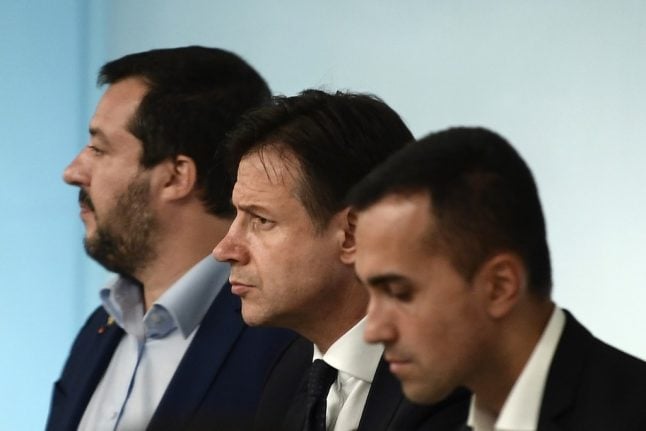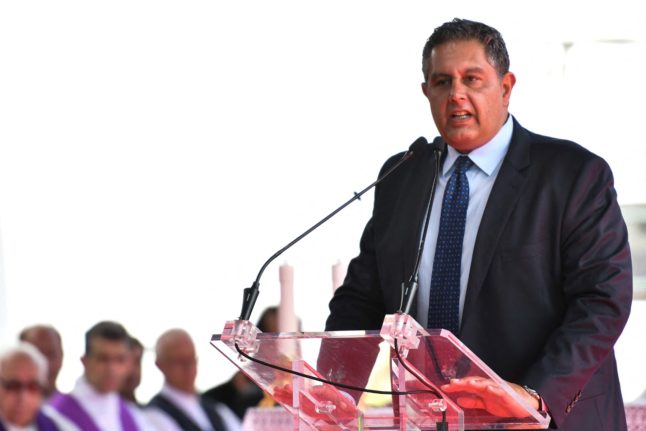“This is a government that has talked a lot but has done much less than it said it would,” Franco Pavoncello, political science professor at the John Cabot university in Rome, told AFP.
There have been two major reforms on the socio-economic front: a basic national income — wanted by the League's coalition partner, the anti-establishment Five Star Movement (M5S) — and a chance to retire earlier, which was a League election promise.
READ ALSO:
- 2.7 million people apply for Italy's basic income scheme
- Italian government approves overhaul of welfare and pensions
- Italy's public debt to hit record high in 2019: EU
The measures may have been crowd pleasers, but they dealt a blow to the country's public deficit and its already mammoth debt, which is more than €2,300 billion.
“The past year has led to the situation Italy now faces,” Pavoncello said. “With having to find 40 to 50 billion euros for next year's budget, the increase in the spread, [and] the decline in growth, we are moving towards a new fall-out with the EU.”
Italy also lowered its growth figures for the first quarter of 2019 on Friday to just 0.1 percent — a blow for the government.
Role reversal
The European Commission has called on them to explain the deterioration of its public accounts. It won't be their first sparring match: the coalition rowed bitterly with Brussels at the end of last year over its big-spending 2019 budget, which the European Commission rejected in a historic first.
Both sides then made compromises to get the budget over the line a few months before European elections, soothing nerves among international investors and market. But the spread — the closely watched premium asked by investors for Italian versus German debt and a good indication of market concern — has widened to around 280 points over the year, compared to 150 in May 2018.
READ ALSO:
- Italy's EU election results by region: Who won where?
- The biggest winners and losers in Italy's EU election results
- League victory in EU vote strains Italian government
In the meantime, the political situation has undergone a complete about-turn since June 1st 2018, when the eurozone's third-largest economy got its first populist administration. The M5S celebrated taking an impressive 32 percent at last year's general election, while the League scored 17 percent.
At last week's EU vote, however, the M5S won just 17 percent, while the League triumphed with 34 percent.
Strongman Salvini, deputy prime minister and interior minister, was already acting as if he was head of government, the major Italian dailies said on Friday.

Matteo Salvini celebrates the League's EU election victory. Photo: Miguel Medina/AFP
Salvini 'predominant'
The Corriere della Sera newspaper said it would take about a month to see whether or not the government would survive.
“For a year, the League and M5S have contradicted each other. Continuous and exhausting negotiations have led to the adoption of laws on divergent interests, with a negative impact on the deficit and debt,” it said.
“Now, even negotiations no longer seem likely… Salvini's project has become predominant.”
The League and M5S are set to wrangle over numerous issues in the coming weeks. The League wants its coalition partner to end its resistance to a high-speed rail line between the cities of Turin and Lyon in France, and their idea for a flat-tax rate.
FOR MEMBERS: What is Italy's flat tax and who would it benefit?
“It remains to be seen if the coalition finishes its entire term, given the major ideological differences that constantly cause friction,” said Michiel van der Veen from Rabobank.
But Flavia Perina, political journalist with La Stampa daily, said Salvini would not be the one to pull the plug: “He is determined to leave any responsibility for political crises to the M5S.”
Nor does he want to risk losing the votes the League has just picked up from disaffected M5S supporters, “an enormous army of deserters who need to be kept close,” she said.
By AFP's Ljubomir Milasin



 Please whitelist us to continue reading.
Please whitelist us to continue reading.
Member comments